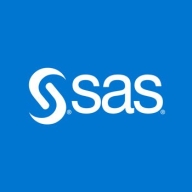

Find out what your peers are saying about Databricks, Amazon Web Services (AWS), Apache and others in Streaming Analytics.
| Product | Market Share (%) |
|---|---|
| Apache Kafka | 4.0% |
| SAS Event Stream Processing | 0.9% |
| Other | 95.1% |


| Company Size | Count |
|---|---|
| Small Business | 32 |
| Midsize Enterprise | 18 |
| Large Enterprise | 49 |
Apache Kafka is an open-source distributed streaming platform that serves as a central hub for handling real-time data streams. It allows efficient publishing, subscribing, and processing of data from various sources like applications, servers, and sensors.
Kafka's core benefits include high scalability for big data pipelines, fault tolerance ensuring continuous operation despite node failures, low latency for real-time applications, and decoupling of data producers from consumers.
Key features include topics for organizing data streams, producers for publishing data, consumers for subscribing to data, brokers for managing clusters, and connectors for easy integration with various data sources.
Large organizations use Kafka for real-time analytics, log aggregation, fraud detection, IoT data processing, and facilitating communication between microservices.
Artificial intelligence and machine learning are the most transformative technologies of our time, and SAS is more committed than ever to investing in its potential to move humanity forward.
We monitor all Streaming Analytics reviews to prevent fraudulent reviews and keep review quality high. We do not post reviews by company employees or direct competitors. We validate each review for authenticity via cross-reference with LinkedIn, and personal follow-up with the reviewer when necessary.